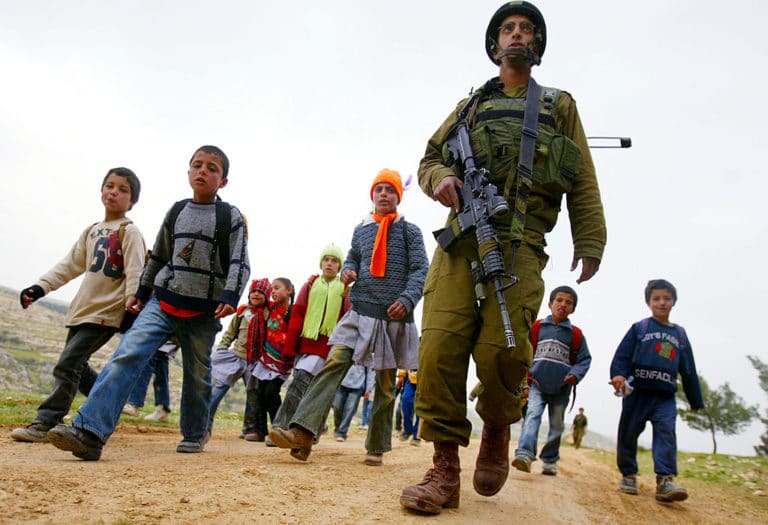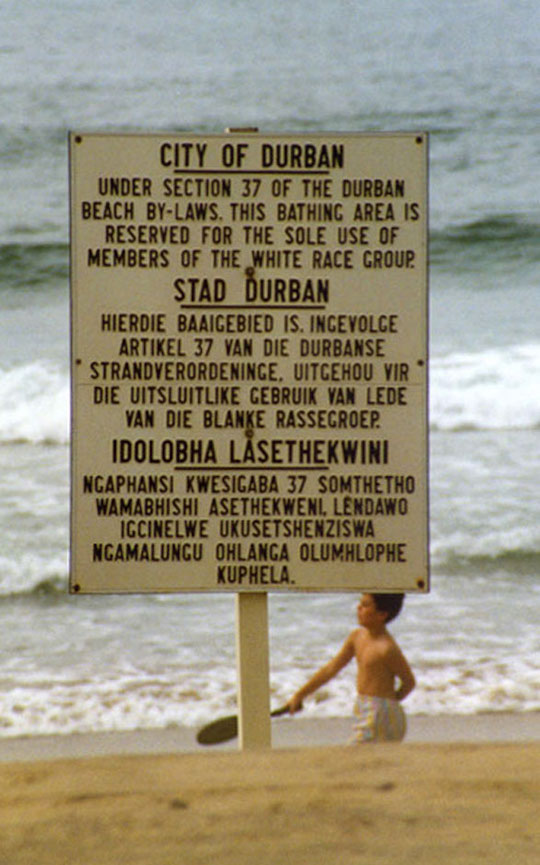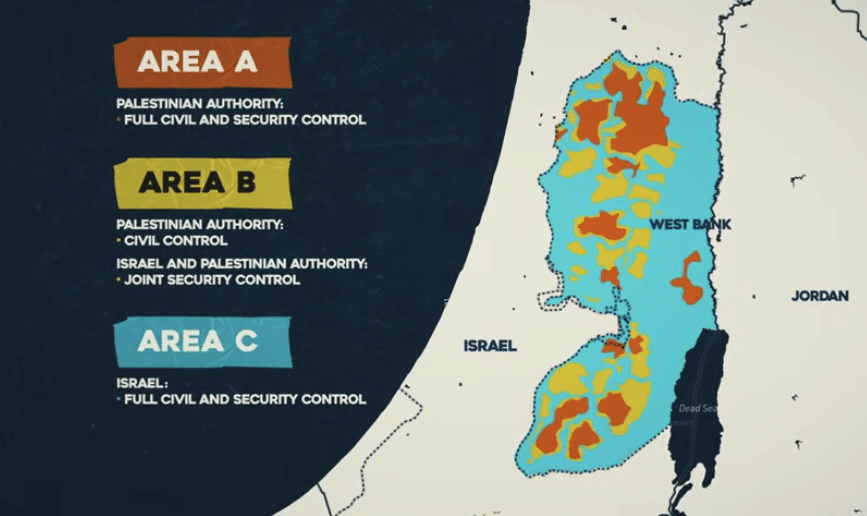
We’re curious…
The London-based non-governmental agency (NGO) Amnesty International released a nearly-300-page report on Tuesday accusing Israel of practicing apartheid over the Palestinians since 1948.
Our official new report looks at the decades-long suffering of Palestinians under Israel’s rule. We've concluded that Israel’s treatment of Palestinians throughout Israel & the Occupied Palestinian Territories amounts to apartheid.
— Amnesty International (@amnesty) February 1, 2022
Read for yourself. https://t.co/ghC8mU8VXH
The NGO defined Israel’s actions of apartheid as “inhuman or inhumane acts of forcible transfer, administrative detention, torture, unlawful killings and serious injuries, and the denial of basic rights and freedoms or persecution committed against the Palestinian population.”
This “demonstrates that Israel has established and maintained an institutionalized regime of oppression and domination of the Palestinian population for the benefit of Jewish Israelis, a system of apartheid” since the founding of the state, the report concluded.
Amnesty further called on the United States, European Union, United Kingdom, and the member states of the Abraham Accords “to recognize that Israel is committing the crime of apartheid” and “review any cooperation and activities with Israel to ensure that these do not contribute to maintaining … apartheid.”
“Governments who continue to supply Israel with arms and shield it from accountability at the UN are supporting a system of apartheid…and exacerbating the suffering of the Palestinian people,” Amnesty Secretary-General Agnès Callamard said.
Israel’s Foreign Ministry said that the report “denies Israel’s right to exist as the nation-state of the Jewish people,” adding that the NGO’s “extreme language and distortion of the historical context were intended to demonize Israel and pour fuel into the engines of antisemitism.”
With the Amnesty report sending shock waves throughout Israel and the Jewish world, we wanted to delve into this story and reactions from Jewish leaders. Also, what even is apartheid, and how does the situation in Israel, East Jerusalem, the West Bank and Gaza compare to that definition?
Perspectives from the Jewish world
The Jewish world was largely united in condemning the Amnesty report (with the exception of the group If Not Now). In statements, Jewish groups underscored the inaccuracy of Amnesty’s claims against Israel and how this will further spread anti-Zionism and antisemitism.
Here are a few statements we have collected for you:
The Conservative Movement’s Rabbinical Assembly (RA) called Amnesty’s claims “outrageously dishonest,” adding, “[We] are deeply disturbed by the lies [and] obvious biases…It is deceitful to level ‘apartheid’ accusations against Israel, a vibrant democracy that grants equal rights and representation to all its citizens.”
Amnesty’s “repeated demonization and delegitimization of Israel as the Jewish homeland echoes the tenets of modern antisemitism,” the RA added. “This report will inevitably embolden antisemites around the world.”
Similarly, The Union for Reform Judaism strongly rejected the report,” declaring that it “is replete with discredited and inaccurate allegations, including a deeply wrong accusation of apartheid.”
“It is particularly incumbent upon those of us who have condemned the Occupation as a moral travesty…and who have a lengthy record of advocating for the human rights of the Palestinian people…to express our profound disappointment and explicit condemnation,” they added.
Meanwhile, The Orthodox Union (OU) said the “biased and one-sided report…seeks a sad but simple goal: to demonize and delegitimize the Jewish and democratic State of Israel. This is most obvious when the report seeks to delegitimize the existence of Israel by framing its accusations against Israel as commencing ‘since its establishment in 1948.’”
“At a time of surging antisemitism in the U.K., Europe, the U.S. and around the globe,” the OU continued, “this libelous document resorts to baseless ‘apartheid’ accusations against Israel…We call on all parties of good faith to condemn this ideologically-driven polemic.”
In a joint statement, the Conference of Presidents of Major American Jewish Organizations, the Anti-Defamation League, American Israel Public Affairs Committee, American Jewish Committee, B’nai B’rith International and the Jewish Federations of North America echoed all of this:
“The report fuels those antisemites around the world who seek to undermine the only Jewish country on earth… The report makes no secret of its true intention — which is to cast aspersions on the State of Israel, which it portrays as illegitimate, starting ‘at its creation in May 1948.’”
The left-wing group J Street took a slightly different tone from the other organizations above. It rejected Amnesty’s accusation of “apartheid,” but said that the report “shines another bright spotlight on the injustice of Israel’s occupation.”
As a democracy, Israel has voices who defended Amnesty’s report, as 13 NGOs agreed with their findings.
However, Israeli politicians from across the political spectrum condemned the report. For instance, Knesset member Esawi Frej from the left-wing Meretz party said on Twitter, “Israel has many problems that must be solved, both within the Green Line and especially in the Occupied Territories, but Israel is not an apartheid state.”
יש לישראל הרבה בעיות שחובה לפתור אותן, בתחומי הקו הירוק ועל אחת כמה וכמה בשטחים הכבושים, אבל ישראל היא לא מדינת אפרטהייד.
— 🟣 Esawi Frej 'עיסאווי פריג (@EsawiFr) February 1, 2022
Justice Minister Gideon Sa’ar of the right-wing New Hope party tweeted that Amnesty was “whitewashing terror,” noting that it failed to mention Israelis being held by Hamas. “Amnesty has again chosen dirty politics & falsehoods over human rights,” he wrote.
How did Palestinian society react? The Palestinian Authority (PA), Hamas and several Palestinian factions all welcomed the report, with the PA praising Amnesty for “exposing Israel’s colonial occupation for what it is: an institutionalized system of oppression and domination over the Palestinian people.”
Ahmed Majdalani, a senior PLO official in Ramallah, also praised the report as “new documentation that qualifies to prosecute Israel for its crimes.” The report “gives an accurate description of the racist and fascist occupation practices and war crimes” against the Palestinians, he said.
Palestinian peace activist Bassem Eid, however, expressed the complete opposite view. “I am here to set the record straight,” he said in a Facebook video. “The international community is yet again lying about Israel. While it is not a perfect country, Israel is definitely not an apartheid state.”
Amnesty’s report is “full of misinformation and lies about Israel,” Eid added. As some Arab states are “embracing Israel with open arms,” “Amnesty International and other Israel haters…want to continue demonizing Israel and denying it the right to exist as the one and the only Jewish state.”
Michael Koplow of the Israel Policy Forum offered his opinion that “Israel’s occupation of the West Bank and treatment of Palestinians are problematic enough in their own right.” But, he concluded, “The apartheid charge is conceptually wrong, and to concede that is not to minimize the actual wrong or harm taking place.”
“To instead insist on that charge’s unerring accuracy places that very wrong and harm in a badly misread context,” he added. “It may make sense in a world in which racial identity politics are viewed as the explanatory variable behind every power imbalance and misdeed, but it makes little sense in the world in which Israelis and Palestinians actually live.”
What is apartheid?
With all of the buzz about the Amnesty report, it seems like a good time to ask, what does the term “apartheid” mean in the first place? Let’s look at a few definitions.
According to the Oxford Dictionary, apartheid is “a policy or system of segregation or discrimination on grounds of race.”
The International Criminal Court, an intergovernmental organization that prosecutes international crimes, defines it as “an institutionalized regime of systematic oppression and domination by one racial group over any other racial group or groups.”
According to Encyclopedia Britannica, apartheid is the “policy that governed relations between South Africa’s white minority and nonwhite majority and sanctioned racial segregation and political and economic discrimination against nonwhites.”
What happened in South Africa? When South Africa’s all white National Party came to power in 1948, it gave policies of racial segregation (which were already place) the official name “apartheid.”
In 1950, the government passed a law establishing residential and business sections in urban areas for each race, barring members of other races from living, conducting business or owning land in those places.
This and subsequent legislation resulted in more than 80% of South Africa’s land being reserved for the white minority population. Nonwhites were required to carry documents certifying their presence in the restricted areas.
Other laws of the system “forbade most social contacts between the races, authorized segregated public facilities, established separate educational standards, restricted each race to certain types of jobs, curtailed nonwhite labor unions, and denied nonwhite participation (through white representatives) in the national government,” according to Britannica.
The system lasted until 1994.

Israel’s actions toward Palestinians
Now that we know what apartheid means, does this claim have any merit in Israel’s case? We created a whole video on that topic, but the short answer is, that label is a gross misrepresentation and oversimplification of a complex reality.
According to Israel’s Declaration of Independence (proclaimed on May 14, 1948 as the country’s founding document), “The State of Israel…will uphold the full social and political equality of all its citizens, without distinction of race, creed or sex [and] will guarantee full freedom of conscience, worship, education and culture.”
“Even though the proclamation is neither a law nor an ordinary legal document, it has legal validity” and “declares the principles which will guide the State of Israel,” according to the Israeli Knesset website.
What does this look like in practice with respect to Palestinians? First, within Israel, Palestinians and Arabs enjoy full rights as citizens. Israel’s current ruling government coalition includes an Islamist party and Arab citizens take part in every corner of Israeli society.

Arab citizens serve as Supreme Court judges, government ministers, military officers and business leaders. While there are indeed economic disparities between the two communities, Israel’s current government is addressing these issues by investing $10.3 billion over the next 5 years back into the community.
In the West Bank, Gaza Strip and East Jerusalem, the situation is different. To start, in these areas Palestinians are not Israeli citizens and hold Palestinian Authority passports.
Under the Oslo Accords, signed in the 1990s between Israel and the Palestine Liberation Organization (PLO), the West Bank was divided into three areas: “A,” “B” and “C.”
Area A is completely under PA control, Area B is under PA civil control and joint PA-Israel security control, and Area C is under Israeli security control and administered by an Israeli military administration.
The vast majority of Palestinian residents in the West Bank (90%) live in areas A and B.
Arabs who live in Area C of the West Bank are subject to different laws than Israeli citizens. These laws include the restriction of movement and search and seizure of property.
Israel maintains that these laws are needed to prevent terrorism and that the Oslo Accords gives them the authority to oversee these regions.

What about the situation in the Gaza Strip? The situation there is different from the West Bank because it is ruled by the terrorist organization Hamas, which has vowed to use all of its resources to attack Israel. Both Egypt and Israel maintain a blockade of the area for security reasons, allowing in humanitarian aid but restricting material that could be used for weapons.
Amnesty International’s report fails to mention the security situation in the region, such as the deadly firing of hundreds of rockets by Hamas on civilian targets in Israel in May 2021.
So, does apartheid describe the situation in these territories or not?
In his book “Catch-67: The Left, the Right and the Legacy of the Six-Day War,” Israeli author Micah Goodman made the case for why Israel is not an apartheid state.
Goodman argued that the struggles of the Palestinian national movement and African National Congress are fundamentally different. While Black South Africans demanded to be equal citizens of their country, the Palestinian national movement is demanding an independent state separate from Israel.
At the same time, Goodman acknowledged the complexity of the situation, writing, parts of “Judea and Samaria are under Israeli military rule, but the Palestinian inhabitants there are not Israeli citizens. This fact casts serious doubt on the democratic character of the State of Israel.”
Why does this report matter?
At the end of the day, sticks and stones will break my bones but words can’t really hurt me, right? Is this just semantics or do labels like “apartheid” really matter?
To Israel and those who care about its existence, the answer to that question is a resounding yes. They matter a lot.
To them, calling Israel an apartheid state is dangerous, for Jews in Israel and around the world. For Jewish communities already at risk of a rising tide of antisemitism, the apartheid accusations only add fuel to the fire.
Putting Jewish communities at risk may not be what Amnesty and others intend when calling Israel an apartheid state — but Israel’s supporters would argue that it’s the impact that matters, not the intent.
But more than that: aside from being dangerous, the name-calling isn’t helpful. Mislabeling Israel an apartheid state won’t actually move the needle on this conflict. It’s just a provocative moniker that shuts down dialogue.
To be sure, no country, including Israel, is perfect. And there’s no shortage of passionate disagreement amongst Israelis.
Whether it’s Israel’s policies in the West Bank or the 2018 Nation State Law, Israelis themselves debate a range of issues.
But for the vast majority of Israelis and Jewish people across the globe, the apartheid label is different. It’s wrong and it’s beyond the pale — because it amounts to weaponization of language that could open a pandora’s box of dangerous ramifications today, and well into the future.
In the words of activist Yoseph Haddad:
“Amnesty International, stop disrespecting the history and victims of the actual Apartheid regime in South Africa, and let’s instead work together with Arabs and Jews to resolve these conflicts in a peaceful way, instead of adopting the ideologies and lies that are repeated by extremists who don’t believe that Israel, the only Jewish-democratic state in the world, has the right to exist at all.”
Originally Published Feb 1, 2022 10:27AM EST
